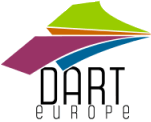Mostrar el registro sencillo del ítem
Language behavior, cultures and identities in migrants living in Madrid
| dc.contributor.advisor | Cañadas Rodríguez, Emilio | |
| dc.contributor.author | Dorado Escribano, Guadalupe | |
| dc.date.accessioned | 2017-10-18T17:28:27Z | |
| dc.date.available | 2017-10-18T17:28:27Z | |
| dc.date.issued | 2017-09 | |
| dc.identifier.uri | http://hdl.handle.net/20.500.12020/531 | |
| dc.description.abstract | Bilingualism is considered to be a key to success and the fact of speaking more than one language seems an advantage for those who are able to use several languages. However, in the migration context, a new language gains ground whereas another one, the immigrants’ mother tongue, is sidelined. Individuals face at a gradual loss of language, or in other words, attrition. Hence, this paper tries to characterize the immigrants’ language performance and their opinion about this possible ‘loss’ of their mother tongue after having been living abroad for several years. Considering language as a marker of culture and identity, these two aspects could not be separated from language. It is through language that individuals communicate and culture is transmitted so this relationship seems obvious to us. Regarding identity, it is through identification marks that identity is more visible and language is one of the most visible aspects of identification. Therefore, this study examines and compares the language behavior, culture and identity of immigrants living in Madrid. Spain has recently moved from being a country of emigration to being a country of immigration and its situation with reference to migration has drastically changed. The population referred to in this article is the city of Madrid. This city proved relevant not only for being the capital of Spain but, most importantly, for being among the cities with the largest rates of immigration in the country. Faced with the impossibility of reaching all minorities, this study zoomed in the nationalities with a higher percentage of migrants, that is, Romania and Morocco. Focusing on these two nationalities (although some other African nationalities will also appear because of linguistic problems in Africa), we could recruit a number of 100 people who were personally interviewed by the author of the present paper. In-depth personal interviews conducted between June 2015 and March 2016 have provided with the history of language acquisition, language use as well as individuals attitudes towards culture and identity. As an indicator of overall language proficiency, formal material such as a C-test and a verbal fluency task were gathered. A retelling task was also performed as informal material. The broad picture seems to indicate an own culture and own language oriented in Africans, what it means that maintaining the mother tongue and culture for them is noticeably more important as a symbol of identity than for other nationalities. Nonetheless, Romanian population trends towards a more visible mix of cultures due to the fact that their culture is quite similar to the Spanish one. | es |
| dc.language.iso | en | es |
| dc.rights | Attribution-NonCommercial-NoDerivatives 4.0 Internacional | * |
| dc.rights.uri | http://creativecommons.org/licenses/by-nc-nd/4.0/ | * |
| dc.title | Language behavior, cultures and identities in migrants living in Madrid | es |
| dc.type | doctoralThesis | es |
| dc.subject.area | Ciencias de la Educación | es |
| dc.subject.keyword | Language and culture | es |
| dc.subject.keyword | Identities | es |
| dc.subject.keyword | Language loss | es |
| dc.subject.keyword | attrition | es |
| dc.subject.keyword | migrants | es |





